The Nightmare Men: “Master By Name, Master By Number”
‘He was impossible to miss. Tall in his dark suit, with his leonine head and imposing looks, he would have seemed prominent in any crowd…’ Such is the description of Titus Crow, delivered by his amanuensis and friend, Henri-Laurent De Marigny in the opening pages of the 1977 story, “The Viking’s Stone”. Created in 1971 by author Brian Lumley, the character was crafted in the tradition of other occult investigators, such as John Silence or Carnacki; Crow was an avowed agent of good, his struggles all the more impressive for occurring as they did in the harsh, nihilistic universe created by HP Lovecraft.
“Titus Crow?” said Arnold. “Yes, well, we’ve all had reason to fear him in our time…”
-Geoffrey Arnold, “The Black Recalled” (1983)
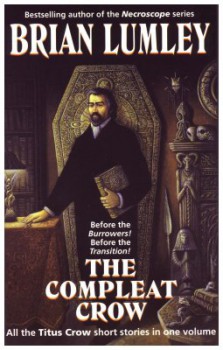 Titus Crow first appeared in Lumley’s 1971 story, “The Caller of the Black”. Crow’s credentials as a psychic sleuth and occult investigator are impressively vetted in the story, as he defeats both mortal and immortal enemies through the cunning application of the standard Lovecraftian eldritch lore, a shower faucet and a window pole. From the outset, it is clear that Crow inhabits the same deadly universe as Inspector Legrasse or John Kirowan, where elder entities prey on a mostly unaware human population; but unlike the former, Crow is well-armed against such entities and, unlike the latter, he’s quite happy to test himself against their machinations out of simple heroism.
Titus Crow first appeared in Lumley’s 1971 story, “The Caller of the Black”. Crow’s credentials as a psychic sleuth and occult investigator are impressively vetted in the story, as he defeats both mortal and immortal enemies through the cunning application of the standard Lovecraftian eldritch lore, a shower faucet and a window pole. From the outset, it is clear that Crow inhabits the same deadly universe as Inspector Legrasse or John Kirowan, where elder entities prey on a mostly unaware human population; but unlike the former, Crow is well-armed against such entities and, unlike the latter, he’s quite happy to test himself against their machinations out of simple heroism.
Schooled in a wealth of occult lore and possessed of an innate desire to confront evil, Crow is seemingly destined from birth to pit himself against the abominable. Indeed the 1987 story, “Inception” concerns the weird circumstances of Crow’s birth and baptism and the battle between Good and Evil which revolves around the latter. Too, the occult numerology behind the date and hour of that special birth comes into play more than once, as those numbers show Crow to be a Master Magus, a fact which puts a spanner into more than one opponent’s scheme.
In “The Lord of the Worms” (1983), Crow’s early career working for the British War Department in World War Two is mentioned, during which he worked to foil Hitler’s occult machinations. His destruction of the eponymous entity is his first step on the road which leads to his first ‘official’ case as an occult investigator in “The Caller of the Black”, wherein he confronts the villainous sorcerer Gedney and the nightmarish entity known only as ‘The Black’.

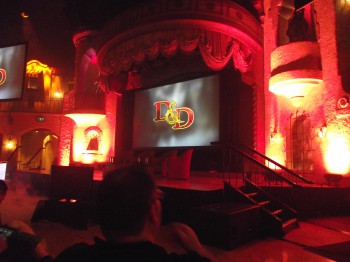
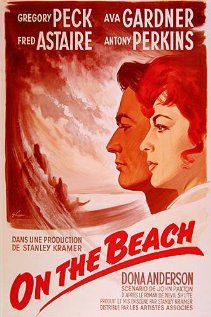


 I get more and more e-mails about the sources I use to write about ancient Arabia, and questions about those sources come up more and more frequently every time I turn up on a convention panel. As a result, I took a long post live on my blog today about one of my favorite books, a historical memoir from the 11th century. When I talk about any of my sources in person I can only tell you how good I think it is. One of the benefits about putting my thoughts in writing is that I can provide examples from the text to prove my point.
I get more and more e-mails about the sources I use to write about ancient Arabia, and questions about those sources come up more and more frequently every time I turn up on a convention panel. As a result, I took a long post live on my blog today about one of my favorite books, a historical memoir from the 11th century. When I talk about any of my sources in person I can only tell you how good I think it is. One of the benefits about putting my thoughts in writing is that I can provide examples from the text to prove my point.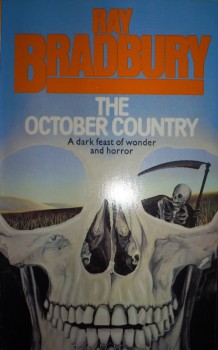 I came to Ray Bradbury at what is likely a later age than most. I never had to read Fahrenheit 451 in school; if I read one of his short stories as a student I have no recollection. Several years ago, in a desire to start filling in some gaps I had in classic genre fiction, I gave Fahrenheit 451 a try. It was a powerful read and made a profound impact on me. It prompted me to seek out more Bradbury—and I’ve been hooked ever since.
I came to Ray Bradbury at what is likely a later age than most. I never had to read Fahrenheit 451 in school; if I read one of his short stories as a student I have no recollection. Several years ago, in a desire to start filling in some gaps I had in classic genre fiction, I gave Fahrenheit 451 a try. It was a powerful read and made a profound impact on me. It prompted me to seek out more Bradbury—and I’ve been hooked ever since.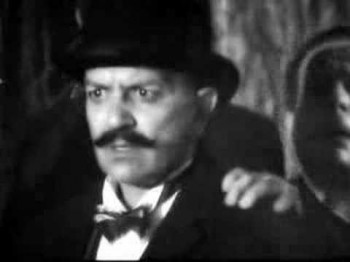 Like Van Helsing before him, Inspector John Raymond Legrasse has only had one canonical appearance: HP Lovecraft’s seminal
Like Van Helsing before him, Inspector John Raymond Legrasse has only had one canonical appearance: HP Lovecraft’s seminal  Abraham Van Helsing only had one truly canonical appearance, arriving as he did mid-way through Bram Stoker’s Dracula. However, so strong was the Dutch professor’s hold on the public imagination, and so fierce his rivalry with the Lord of the Undead, that he has followed his nightmare enemy into the Twentieth Century like a gin-drinking Fury.
Abraham Van Helsing only had one truly canonical appearance, arriving as he did mid-way through Bram Stoker’s Dracula. However, so strong was the Dutch professor’s hold on the public imagination, and so fierce his rivalry with the Lord of the Undead, that he has followed his nightmare enemy into the Twentieth Century like a gin-drinking Fury.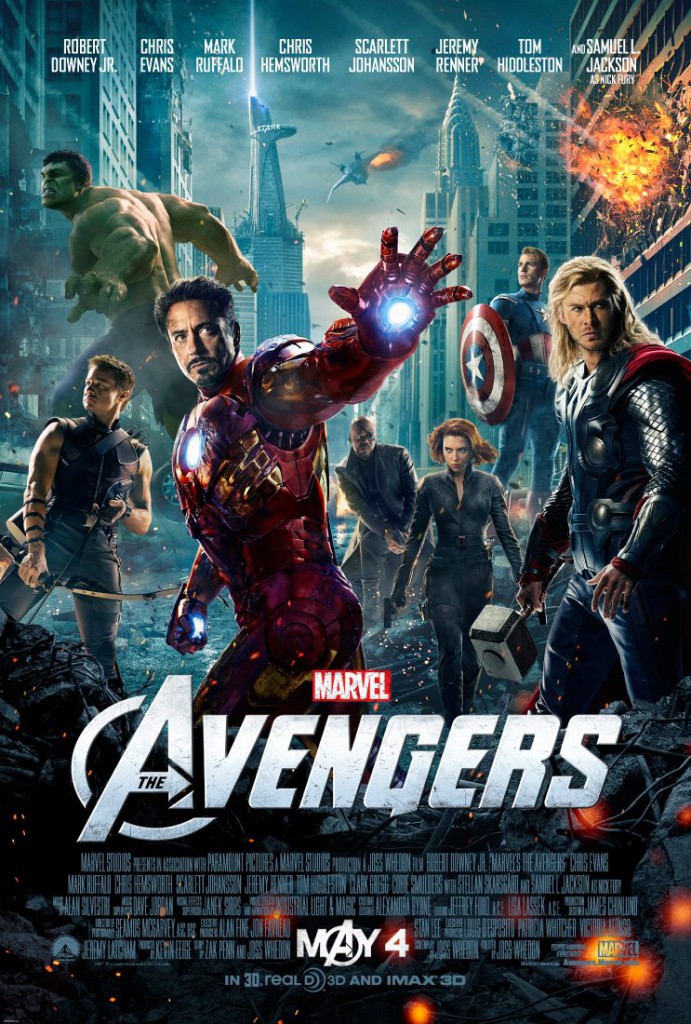 Disclaimer: This article will reference some scenes from The Avengers film. While I’ve tried to avoid specific spoilers about major twists, there are some things that give away plot elements and twists from the other Marvel Comics movies, such as Thor.
Disclaimer: This article will reference some scenes from The Avengers film. While I’ve tried to avoid specific spoilers about major twists, there are some things that give away plot elements and twists from the other Marvel Comics movies, such as Thor.